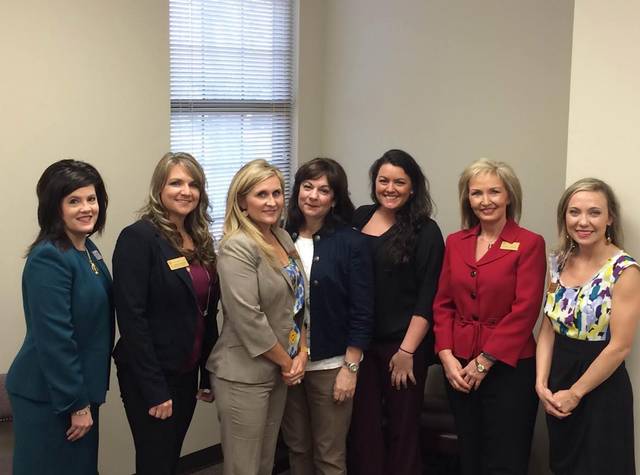By Regina Zilbermints
The Sun Herald
WWR Article Summary (tl;dr) The number of women in academia nationwide has been steadily growing for 50 years, but the number of women in leadership positions at colleges and universities hasn’t kept pace. A small college in Mississippi is changing all that by empowering women to lead.
The Sun Herald
When Amy Townsend started at Pearl River Community College 19 years ago, she had to learn to operate “in a man’s world,” she said.
In Poplarville, that’s not the case anymore. And that’s unusual.
The number of women in academia nationwide has been steadily growing for 50 years, but the number of women in leadership positions at colleges and universities hasn’t kept pace.
The American Council on Education found 27 percent of deans of academic colleges and 26 percent of college or university presidents are women.
But one small community college in southern Mississippi is bucking that trend.
Fourteen of 23 of Pearl River Community College’s administrators — 60 percent — are women.
There was no specific program or initiative to boost that number, officials said. It happened organically — a result of national trends such as more women earning advanced degrees, and factors specific to PRCC such as leaders who nurtured women in leadership roles.
It also happened because women there were able to see those who had come before them succeed.
“It gives you a goal, a realization that if you set that goal for yourself there’s nothing holding you back,” said Amanda Parker, PRCC’s assistant vice president for Forrest County operations.
Many of those 14 women credited two people with helping women thrive at Pearl River: Rebecca Askew, one of the school’s first female leaders, who retired in 2014 as vice president for planning and institutional research, and President William Lewis.
Askew mentored young women and showed them a path to leadership, several people said.
“Dr. Lewis fostered an environment where mentors are crucial to growing leaders,” said Jennifer Seal, vice president for planning and institutional research. Seal has been at Pearl River for 13 years and took over for Askew in 2014. “It gives in-house employees a chance to grow.”
That’s important because the number of women in academia generally has been growing far faster than the number in leadership roles. At PRCC, there are more female than male faculty members. Many of the nation’s colleges and universities, PRCC included, have more female than male students. And more women are earning advanced degrees.
“In the last five or six years of hiring, overwhelmingly the pool of applicants has been female,” Townsend said. “Significantly more women apply.
“More women are furthering their education so when the opportunities are available they are in a position to walk through the door.”
The challenge, nationally, remains how to take those female students, faculty and staff members and move them into leadership roles.
For the women already in those spots at Pearl River, having other women there has helped them face challenges unique to women.
Several female administrators said they’ve struggled balancing family obligations. Male colleagues also need to find that balance, but historically the role has fallen to women.
“That’s where seeing your mentor doing it comes in,” Parker said. “It’s a good support network. Things happen and people understand. They don’t question it. No one looks down on you.”
Maghan James, who as assistant dean for student life deals with disciplinary issues, said she’s also had to learn to be assertive in dealing with students. At the same time, she acknowledged the students may see and respond to her as more of a “mother figure” than they do some of her male counterparts.
“It’s been a struggle but a great learning experience,” she said.
All the women said they now mentor younger female colleagues — helping them rise through the ranks and showing them it’s possible. They said when they look at the future generation, they see themselves.
And they do the same for their own children.
“I’m proud to have a daughter,” Parker said. “I teach her she can be anything she wants to be.”














































































































































































































































































































































































